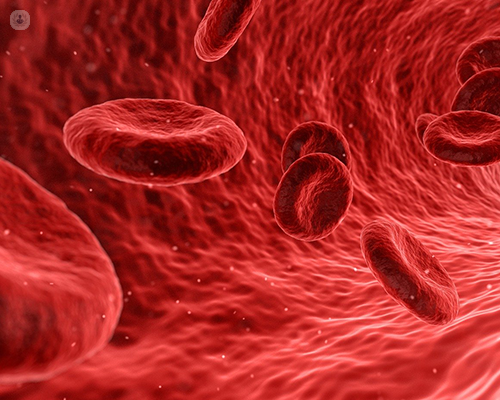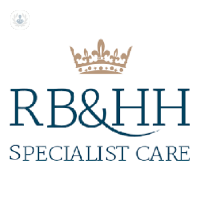Haemoglobinopathy
Dr Emmanuel Ako - Cardiology
Created on: 03-31-2020
Updated on: 03-07-2024
Edited by: Sophie Kennedy
What is haemoglobinopathy?
Haemoglobinopathy is a clinical term that describes a group of blood disorders that affect red blood cells. Blood cells contain haemoglobin, a protein that carries oxygen around the body and removes carbon dioxide. A haemoglobinopathy disorder can cause this protein to be abnormally structured or it results in an abnormal level of the protein’s production.
Common types are:
- Sickle cell disease
- Thalassemias
- Haemoglobin C disease
- Haemoglobin E disease

Prognosis of the condition
At present, there is no cure for haemoglobinopathies. However, there are treatments that can relieve symptoms.
Symptoms of haemoglobinopathy
In very serious cases of a haemoglobinopathy, patients may experience the following symptoms:
- Weakness and fatigue due to anaemia
- Shortness of breath
- In children, there can be problems relating to growth
The insufficient production of haemoglobin or the inadequate structure results in poor functioning of red blood cells. As a consequence, anaemia can occur.
Medical tests to diagnose haemoglobinopathy
After an abnormal result from a blood smear or complete blood count, a specialist may recommend a haemoglobinopathy evaluation. In this evaluation, a pathologist who has expertise in haematology examines the results of several tests. These tests provide information regarding the amount of blood cells and quantity of abnormal blood cells in the patient.
What are the causes?
Haemoglobinopathies are almost always genetically inherited. Many blood-affecting genetic mutations can cause different types of haemoglobinopathy.
Can it be prevented?
As it is genetically inherited, it cannot be prevented. The risk of a child inheriting the condition can be predicted by evaluating with genes the parents carry.
Treatments for haemoglobinopathy
Patients with haemoglobinopathies should receive regular specialist reviews and care. Treatment options and recommendations differ between types of condition.
Bone marrow transplants can provide a cure for haemoglobinopathy. This does not change the genetics of the patient, but it can relieve them of symptoms. This procedure does have side-effects such as infertility, however, and your specialist should describe every treatment and its outcome with you.
Which type of specialist treats haemoglobinopathy?
A haematologist (a blood specialist) and internal medicine specialists can provide management for haemoglobinopathy disorders.



